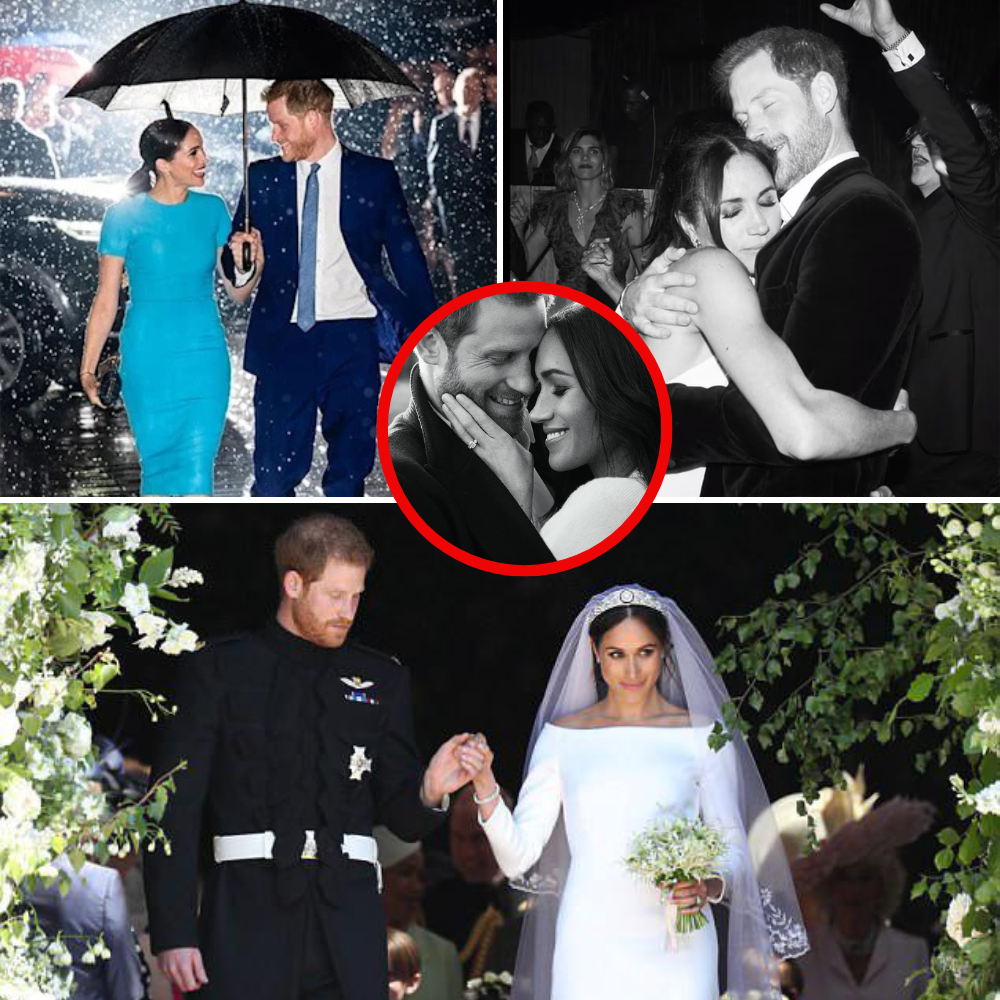
When Meghan Markle stepped into the spotlight as Prince Harry’s fiancée, the world seemed split in two. One side saw a fairytale romance—a biracial, divorced American actress capturing the heart of a British royal, the “spare” to the throne. The other side, more skeptical, whispered about ambition, strategy, and a climb from Hollywood anonymity to global royalty.
But beneath the tabloid headlines and social media fervor lies a deeper question: Did Meghan marry for love, or was her relationship with Prince Harry a calculated move to escape a life of financial insecurity and social invisibility?
Let’s explore the roots of this compelling story—and the controversies that still ripple through Buckingham Palace and beyond.
Before the Palace: Meghan’s Journey from Modest Beginnings
Meghan Markle’s life before royalty was far from a princess tale. Raised by a hardworking single mother in Los Angeles, Meghan navigated the world of acting with persistence but without the security of stardom. Her early roles included brief stints in medical dramas, game shows, and cable network series. Her breakthrough came only with Suits, a legal drama where she played Rachel Zane. Though successful, it wasn’t a world of red carpets and luxury yachts—it was middle-tier fame, and the paycheck, while respectable, hardly guaranteed a lifetime of comfort.
Beyond the screens, Meghan was ambitious. She launched a lifestyle blog, spoke at the UN, and positioned herself as an advocate for women and multiculturalism. She was building a brand—but it had limits in Hollywood. The industry that often favors youth, conformity, and connections rarely makes room for outspoken, biracial women beyond a narrow mold.
In that context, her entry into the British royal family wasn’t just love—it was seismic.
When Worlds Collide: The Courtship That Shook the Media
Meghan and Harry’s romance was whirlwind and, at first, fairytale-like. They met in 2016 through mutual friends, and their chemistry was undeniable. Prince Harry, the rebellious royal who had always stood slightly askew from royal tradition, found in Meghan someone who shared his desire to break away from the script.
But even in those early days, observers noted how Meghan seemed perfectly prepared for the spotlight. From her polished interviews to her carefully curated outfits, everything suggested she knew exactly what she was stepping into.
Was it charm, or was it calculation?
Critics pointed to her sudden deletion of her blog, her cutting off of some former friends, and her swift transition from American actress to Duchess of Sussex as evidence that she wasn’t just adapting—she was maneuvering.
The Wedding Heard Around the World
Their wedding was one of the most-watched events of the decade. A Black gospel choir, a powerful sermon on love and justice, and guests from Oprah to David Beckham—the ceremony defied centuries of royal tradition. It was bold, modern, and deeply symbolic. But while millions celebrated the union, skeptics whispered even louder.
Had Meghan finally “made it”? Was the crown not just a commitment to love but an escape from a life of struggle? And if so, what were the consequences?
Behind the Palace Walls: Fractures and Fallout
It didn’t take long for the honeymoon to fade. British tabloids turned hostile. Rumors of staff quitting, of rifts with Kate Middleton, and of “diva” behavior began swirling. Meghan, once hailed as a breath of fresh air, became the target of relentless media scrutiny.
Prince Harry, deeply protective of Meghan, drew a hard line—eventually leading to the couple’s bombshell decision to step back from royal duties in early 2020.
They cited toxic media coverage and a desire for independence. But critics saw it differently. They claimed Meghan had gotten what she wanted—status, wealth, fame—and was now dragging Harry into a world far removed from duty and monarchy.
The Financial Shift: From Royalty to Global Branding
Post-Megxit, the couple quickly signed deals with Netflix, Spotify, and publishing houses. Their new life in California included a $14 million mansion in Montecito, celebrity neighbors, and media ventures that put them in control of their own narrative.
For some, it confirmed the suspicion: Meghan had traded the royal script for Hollywood freedom—and millions in the process. “The plan all along,” some said, “was escape with a crown.”
But for others, it was simply the arc of an ambitious woman reclaiming her voice and crafting a legacy on her own terms.
What About Love?
Lost in all the speculation is the simple possibility that Meghan and Harry do love each other. Their body language, their unified front in interviews, and Harry’s willingness to sever royal ties suggest something more than strategy. It suggests devotion.
Prince Harry has often spoken about his mother’s struggles with the press, and his desire to shield Meghan from similar harm. In Meghan, he didn’t just find a partner—he found an ally in breaking generational trauma.
So, did Meghan “use” Harry? Or did they both find in each other the escape they longed for—from a scripted monarchy, from personal wounds, and from societal expectations?
Public Opinion: A House Still Divided
To this day, the Meghan-Harry debate is fiercely polarized.
Supporters hail her as a modern icon—fierce, unapologetic, and unafraid to challenge outdated traditions. Critics call her manipulative, self-serving, and divisive.
In reality, the truth may lie somewhere in between. Meghan Markle was not born into royalty, but she was born with drive. Her story—whether you view it as a climb or a coronation—is one of survival, reinvention, and yes, love.
The Final Question: What’s the Cost of Escaping “Normal”?
If Meghan did marry to escape poverty, loneliness, or obscurity, she’s not the first woman to dream of something more. But she is one of the few who made it happen—and endured a global storm for it.
Whether you believe she married Harry for love or legacy, one fact is certain: she changed the royal family forever. And perhaps, that was her greatest ambition all along.